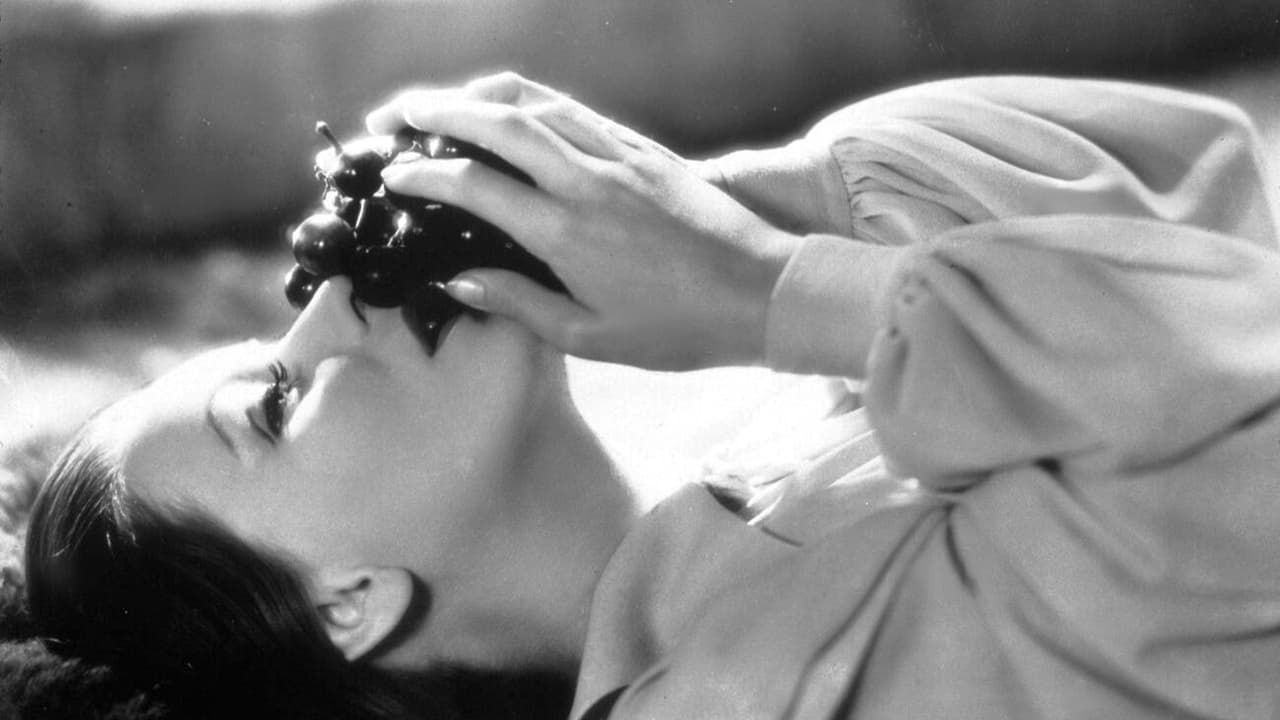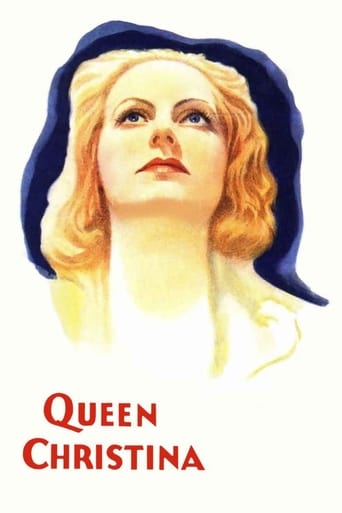

Garbo retired from the screen long before I was going to movies so I've had to catch up with her piecemeal; Two-Faced Woman, for example, never seems to surface whilst Ninotchka is ubiquitous. Recently I acquired a boxed set which I'm working my way through and via which I have just watched Queen Christina. This definitely belongs in the category known as 'they don't make 'em like that anymore' and in this case the cliché describes both the film itself and Greta Garbo who remains luminous some 80 odd years on. People like Lewis Stone, C. Aubrey Smith and Akim Tamiroff, fine actors though they are to a man, simply don't exist in Garbo's world which is ironic as Akim Tamiroff is always spoken of as someone 'the camera loves'. I have no idea how much, if any, of the story is historically factual and frankly, my dear, I don't give a damn when Garbo is available to beguile and enchant.
... View MoreI admit I have to see more of Greta Garbo's films, but from what I have seen I do consider her a beautiful and wonderful actress. In one of her most famous, not to mention one of her best, roles, Garbo plays a 17th century Swedish queen who falls in love with the Spanish ambassador sent to deliver a message from his king. And she is absolutely brilliant, radiant, regal and quintessentially Garboesque, this is by far and away her best performance along with Margherite from Camille-I adore that film too- and like with Camille the whole film is well worth watching just for Garbo's performance. I also liked her in Anna Karinina but I don't consider it as a favourite like I do Camille and Queen Christina.John Gilbert, from her silent days, gives a very good performance too as the ambassador Christina falls in love with and shows great chemistry with Garbo, while the supporting cast give strong performances too particularly Ian Keith in a very slimy turn as Magnus.Garbo is not the only reason why I love Queen Christina so much though. The film also has some beautiful production values, the cinematography is stunning, evident in the gorgeous close-ups of Garbo, while the scenery and costumes are ravishing. The score is haunting, beautiful and melancholic, while the story is very well-told(I liked it when Christina travels the kingdom dressed as a man as well as when she is weighed down by the worries of her throne) the direction is sensitive and the screenplay is lovely. The pacing may be a little slow to some, admittedly Queen Christina isn't a pacey film, but it is never boring. Instead it is very beautiful and touching, and there were some parts that even haunted me such as the achingly moving abdication scene.In conclusion, a real treat for Greta Garbo fans, not only for her wonderful performance but for the rich production values too. 10/10 Bethany Cox
... View MoreHow ironic that back to back I saw what I considered to be the weakest Garbo I've seen ("Anna Karenina"), and the best, "Queen Christina." This is truly one of the great Hollywood films and the finest performance Garbo ever gave. She is brilliant as queen of her native Sweden, a role she was meant for. It's got an excellent cast with her finest co-star, John Gilbert, who co-starred in many of her silent films. The studios destroyed Gilbert by spreading the rumor (as they did with Louise Brooks) that his voice recorded badly. This was totally untrue. His voice in this movie is full-bodied and strong. He and Garbo have screen chemistry to burn. There is a love scene where Garbo walks around studying the room at an inn where she and Gilbert fell in love (He: "What are you doing?" She: "I'm remembering") that has got to rank as one of the most romantic and curiously strange of any to come out of the Hollywood dream machine. And ultimately, the film has that justifiably famous final and luminous shot of Garbo on the deck of a ship looking out to sea as she sails off to her destiny without the man she loves. Directed by Rouben Mamoulian, it has some of the most beautiful cinematography of the period. There's a single shot (a matte painting) of queen Garbo walking through the corridor of the castle at night that took my breath away. I went back and re-watched it a number of times. Wow! Masterful direction. This is the one Garbo film not to miss. Can't recommend it highly enough.
... View MoreA 1933 film set in 1632 and still relevant today.Sadly, a poignant comment on TODAY's politics and wars. Imagine a leader willing to embrace peace, to deal in diplomacy, to realize the not only the financial, but human cost of war!Aside from reading the film as a commentary on today - it's quite good on it's own.I thoroughly enjoyed watching an early portrayal of a strong woman in a leadership role. So refreshing (esp. for the 30's) to seeing a woman refusing to marry, freely taking lovers as she wishes.Garbo is magnificent, so regal so powerful and able to pull off the independent spirit needed for this character (loosely based on the real Queen Christina).It's an interesting study of duty vs. personal needs (better than, but reminding me of Roman Holiday, The Queen).Sure it's not perfect, why do the Swedes sound like drunken American cowboys. How could a Spainard mispronounce the name of Seville? I find it interesting that so many of the characters supposedly find her a young boy simply from her male style of dress. (despite the lipstick & makeup). But these are minor flaws in a great film.*SPOILER*: my only issue is that she's willing to give up her crown to someone she said was simple and warlike. And that Count Magnus is not punished for his actions.
... View More